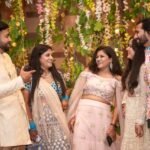Indian Weddings: Celebrations of Love, Traditions, and Joy
Table Of Contents:
- Introduction: Embracing the Vibrant Indian Weddings
- The Essence of Indian Weddings: A Melange of Customs
- Mehndi Ceremony in Indian Weddings: Artistry on Palms
- Sangeet Night: A Musical Extravaganza
- Haldi Ceremony in Indian Weddings
- Baraat: The Groom’s Grand Entrance in Indian Wedding
- Jaimala: Exchanging Garlands of Love
- Phere: Seven Sacred Vows
- Vidaai: Bidding Farewell with Tears of Joy
- The Grandeur of Indian Wedding Attire
- Bridal Lehenga: A Timeless Elegance
- Sherwani: A Regal Splendor
- Bridesmaid’s Sarees: Graceful Companions in Indian Weddings
- Kurta Pajama: Elegance Redefined
- Anarkali Suit: A Graceful Flair
- Indian Weddings: Fusion of Tradition and Modernity
- Destination Weddings: Celebrating Amidst Scenic Beauty
- Social Media in Weddings: The Digital Celebration
- Eco-Friendly Weddings: Embracing Sustainability
- Tech-Savvy Invites: Going Paperless
- Customized Wedding Themes: A Personal Touch
- FAQs about Indian Weddings
- Conclusion: Love Unites in the Colors of Indian Weddings
Introduction: Embracing the Vibrant Indian Weddings
Indian weddings are a symphony of colors, emotions, and rituals, reflecting the diverse cultural tapestry of the country. With a history dating back thousands of years, these weddings are an integral part of India’s social fabric and hold immense significance in the lives of the people. Blending age-old traditions with modern elements, Indian weddings are a delightful fusion of customs, beliefs, and celebrations. In this article, we embark on a journey through the kaleidoscope of Indian wedding festivities, exploring everything from pre-wedding rituals to post-wedding traditions. So, buckle up as we dive into the captivating world of Indian weddings.


The Essence of Indian Weddings: A Melange of Customs
Indian weddings are not just ceremonies; they are a union of families, a celebration of love, and an amalgamation of diverse customs. Each region and community in India has its distinct rituals and practices that contribute to the uniqueness of their weddings. From the vibrant mehndi ceremony to the playful haldi ceremony, every tradition has its charm.
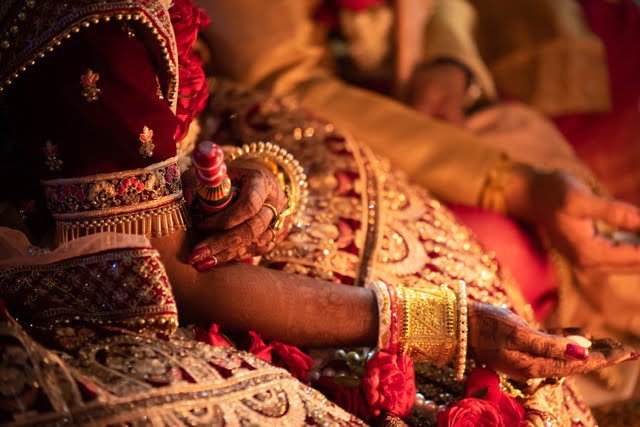
Mehndi Ceremony in Indian Weddings: Artistry on Palms
The Mehndi ceremony is an enchanting pre-wedding ritual where intricate henna designs are applied to the bride’s hands and feet. This celebration is marked by joyous singing, dancing, and the sweet aroma of mehndi. The bride’s mehndi often hides the groom’s name or initials, leading to an exciting game of finding them during the wedding.
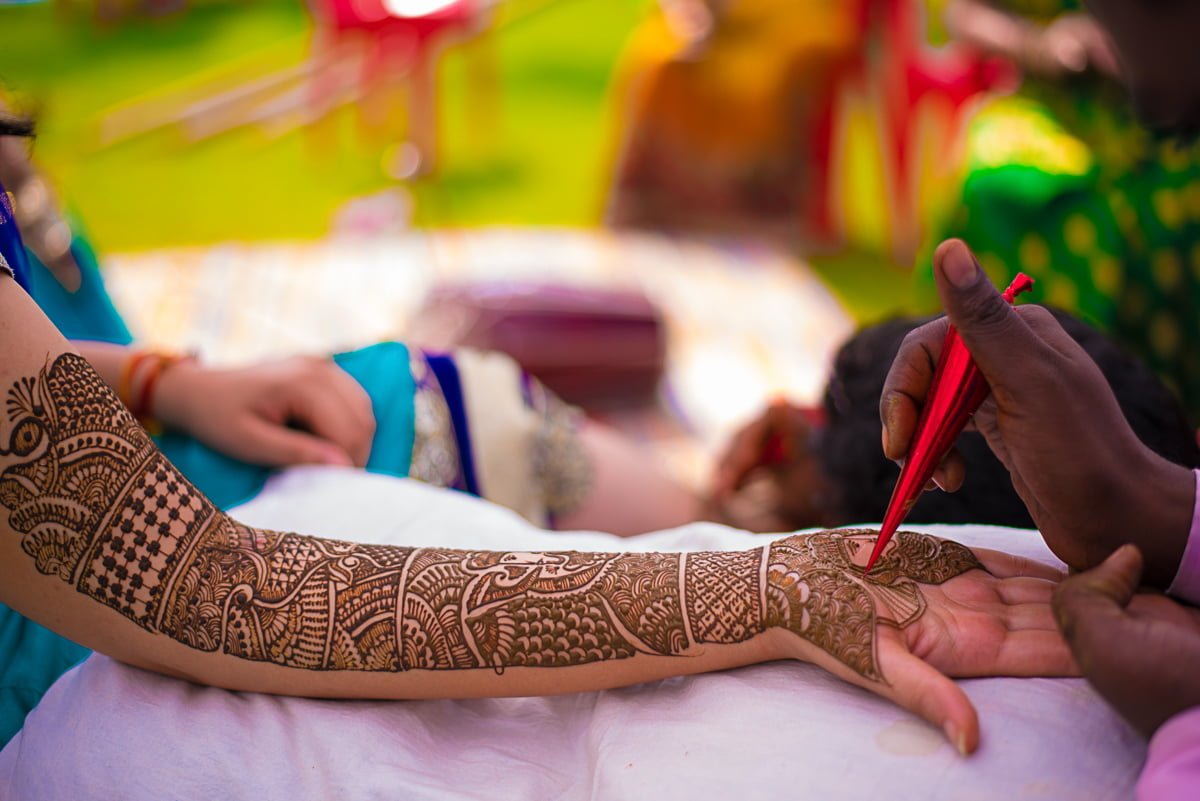
Sangeet Night: A Musical Extravaganza
The Sangeet night is a musical extravaganza where both families come together to sing, dance, and celebrate the upcoming union. It’s an evening of fun and entertainment, with lively performances by family members and friends. The Sangeet is an excellent way for the families to bond and express their happiness through dance and music.

Haldi Ceremony in Indian Weddings
The “haldi ceremony” is indeed a significant part of Indian weddings, particularly in Hindu weddings. It is a pre-wedding ritual celebrated in various regions of India with different names, such as “Haldi ceremony” in North India or “Pithi ceremony” in some parts of South India.
The haldi ceremony typically takes place a day before the wedding, and its primary purpose is to bless the couple with good luck and prosperity. It is a joyous and colorful occasion where turmeric paste is applied to the bride and groom’s body by their close family and friends.
Before the ceremony begins, a paste made of turmeric, sandalwood powder, and other auspicious ingredients is prepared. Turmeric is believed to have properties that enhance the skin’s glow and act as a natural beautifier.
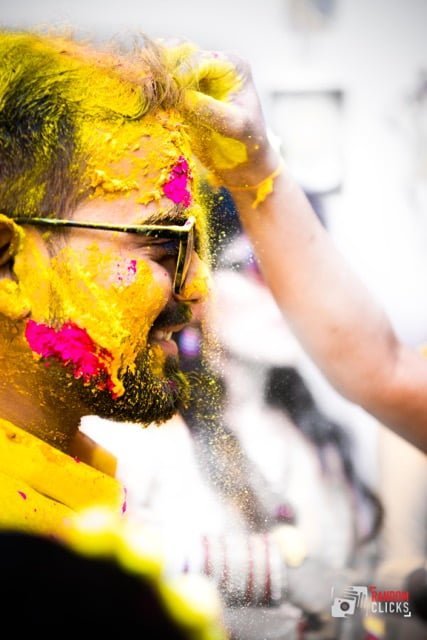
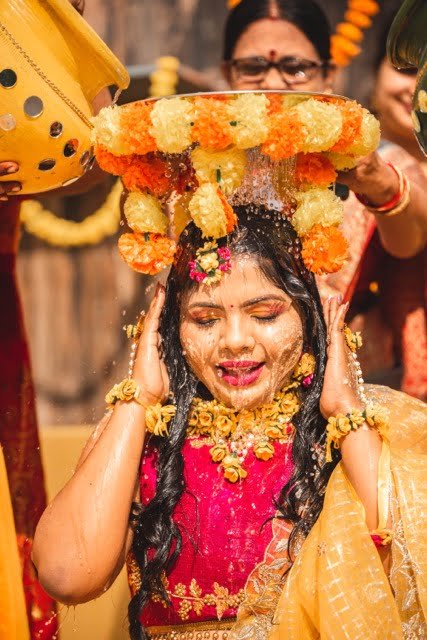
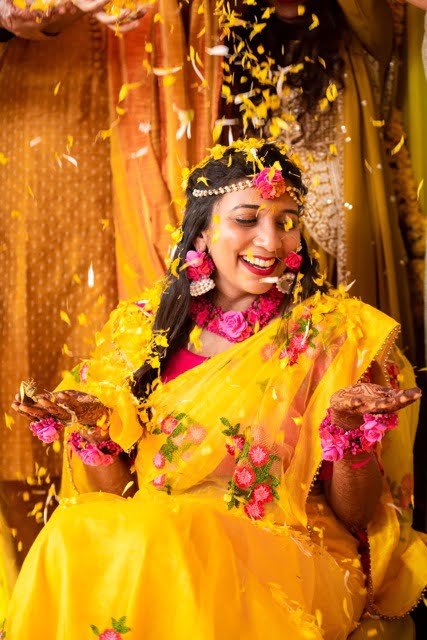
Baraat: The Groom’s Grand Entrance in Indian Wedding
The Baraat is a procession where the groom, accompanied by his family and friends, makes a grand entrance to the wedding venue, often on a decorated horse or elephant. The procession is accompanied by lively music, dancing, and revelry, creating a joyous atmosphere. It symbolizes the groom’s journey to the bride’s house to begin a new chapter of his life.
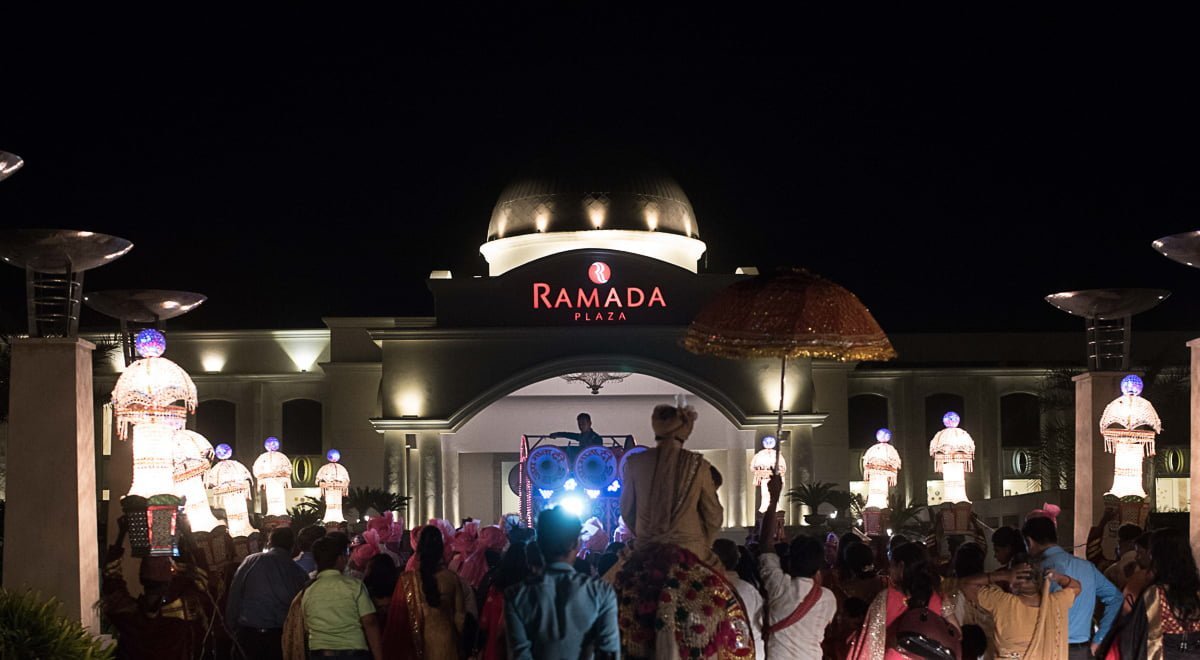
Jaimala: Exchanging Garlands of Love
The Jaimala ceremony is a heartwarming moment when the bride and groom exchange garlands, signifying their acceptance of each other as life partners. This ritual is filled with laughter and cheer as the couple playfully tries to put the garlands on each other while their friends and family cheer them on.
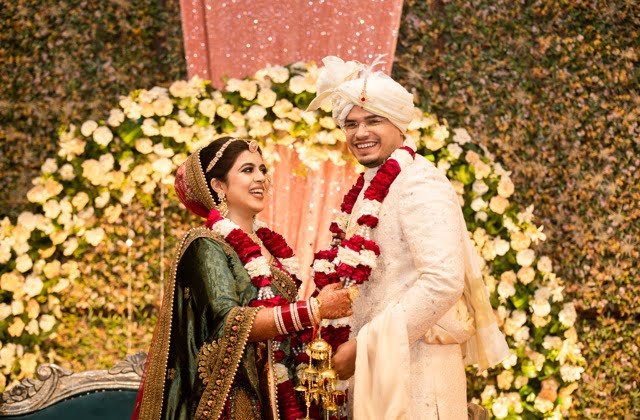
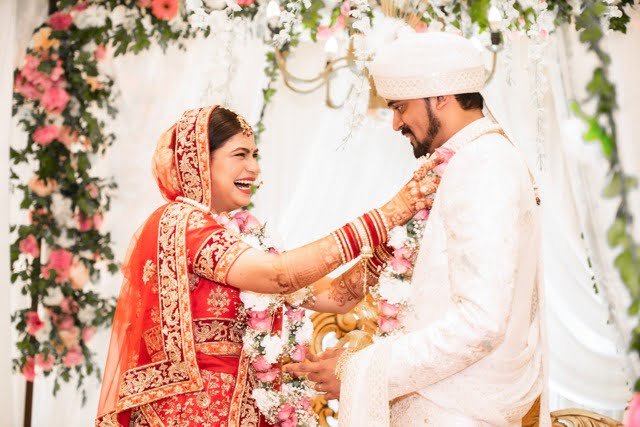
Phere: Seven Sacred Vows
The Phere ceremony is the most sacred part of an Indian wedding, where the couple takes seven rounds around the sacred fire. With each round, they make a vow to each other, promising to stand by each other in joy and sorrow, for better or worse. These vows bind them in a lifelong commitment of love and companionship.

Vidaai: Bidding Farewell with Tears of Joy
The Vidaai ceremony is an emotional moment when the bride bids farewell to her family to start a new life with her husband. It is a bittersweet moment filled with tears of joy and sorrow. The bride’s family showers her with blessings and good wishes as she embarks on her new journey.
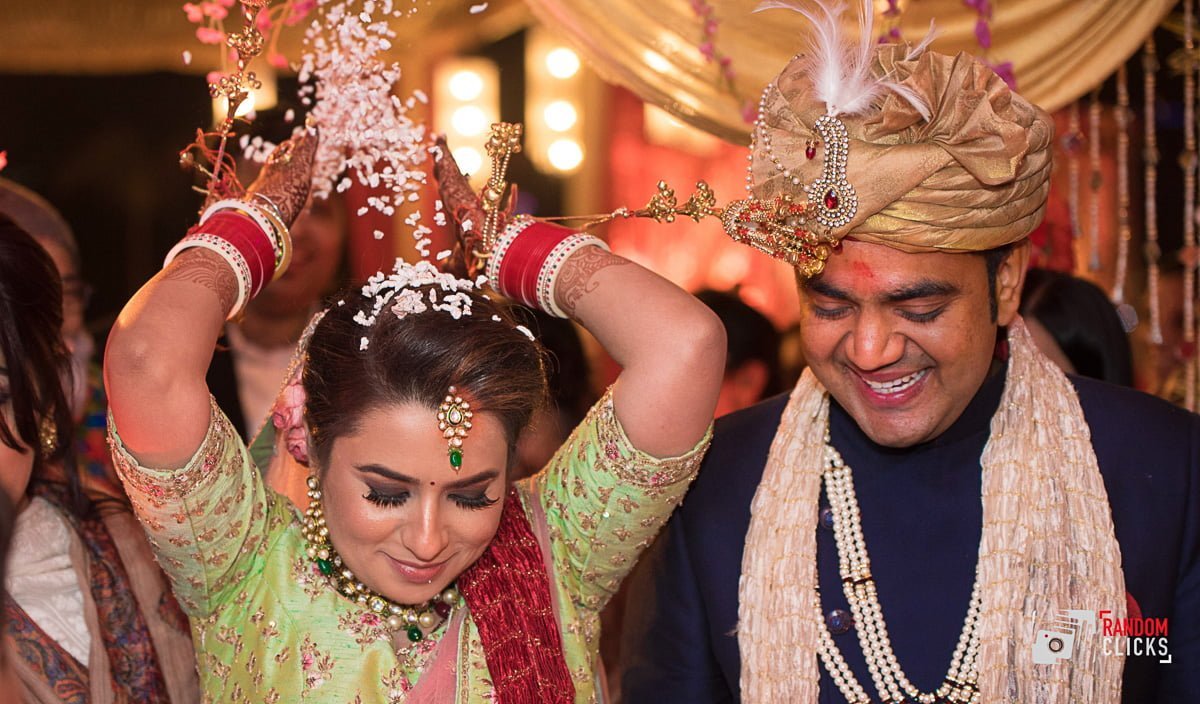
The Grandeur of Indian Wedding Attire
Indian weddings are synonymous with opulent and exquisite attire that reflects the country’s rich cultural heritage. From the bride’s resplendent bridal lehenga to the groom’s majestic sherwani, every piece of clothing is carefully chosen to create a mesmerizing ensemble.
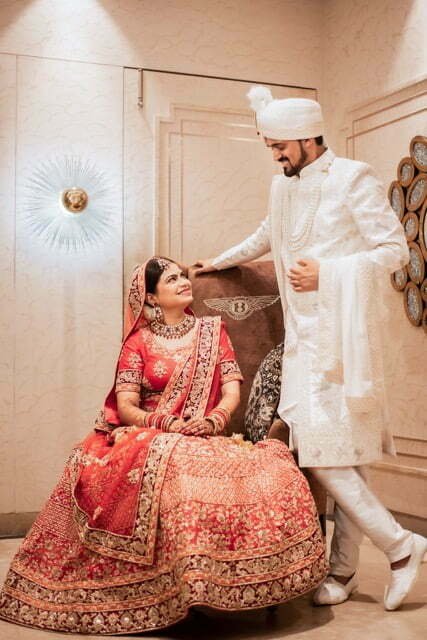
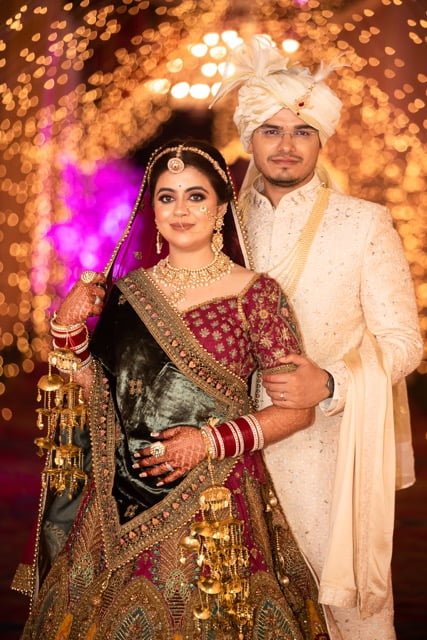
Bridal Lehenga: A Timeless Elegance
The Bridal Lehenga is the quintessential wedding attire for Indian brides. It is a stunning ensemble consisting of a heavily embellished skirt, a choli (blouse), and a dupatta (scarf). The intricate embroidery and craftsmanship on the lehenga make it a masterpiece of artistry.
Sherwani: A Regal Splendor
The Sherwani is the traditional outfit for Indian grooms, exuding regal splendor and sophistication. It is a long coat-like garment, often paired with churidar pants and a stole. The groom’s sherwani is adorned with exquisite embroidery and embellishments, making him look nothing short of a prince.
Bridesmaid’s Sarees: Graceful Companions in Indian Weddings
The bridesmaids’ sarees complement the bride’s attire and add a touch of grace and elegance to the wedding. These sarees are often coordinated with the bride’s lehenga, and the bridesmaids wear matching colors or designs.
Kurta Pajama: Elegance Redefined
The Kurta Pajama is a classic and versatile outfit worn by male attendees at Indian weddings. It consists of a knee-length tunic (kurta) paired with loose-fitting trousers (pajama) or churidar pants. This attire strikes the perfect balance between elegance and comfort.
Anarkali Suit: A Graceful Flair
The Anarkali Suit is a popular choice for female guests at Indian weddings. It features a long, flowing kurta with a fitted bodice and flared skirt, creating a graceful and flattering silhouette.
Indian Weddings: Fusion of Tradition and Modernity
As India embraces modernity, Indian weddings have also witnessed a fusion of traditional customs with contemporary elements. This harmonious blend of the old and the new has given rise to unique wedding experiences that preserve the essence of tradition while embracing modern sensibilities.
Destination Weddings: Celebrating Amidst Scenic Beauty
Destination weddings have become a popular choice among couples who seek a unique and memorable wedding experience. Fascinating locations, breathtaking scenery, and personalized themes make these weddings truly unforgettable.
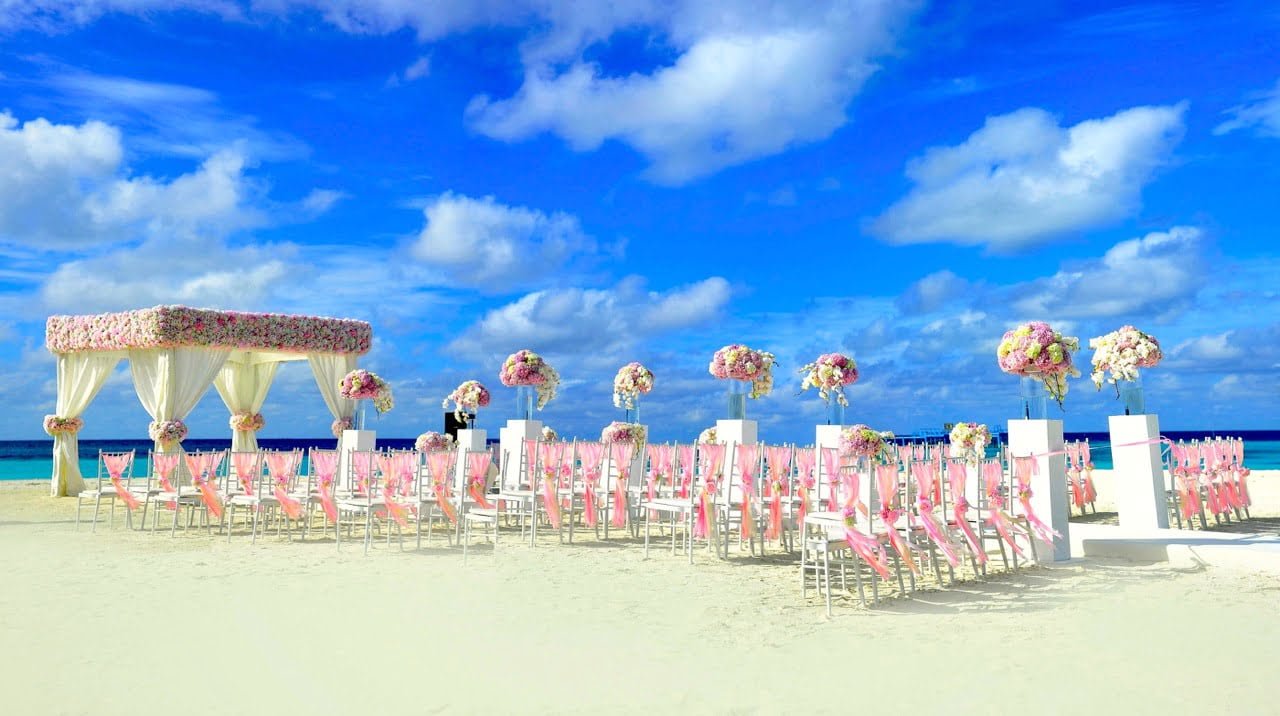
Social Media in Weddings: The Digital Celebration
Social media has revolutionized how weddings are celebrated and shared with the world. Couples and guests use hashtags, live streams, and creative posts to keep their friends and family updated on the wedding festivities, irrespective of geographical boundaries.
Eco-Friendly Weddings: Embracing Sustainability
With a growing awareness of environmental impact, eco-friendly weddings are gaining popularity. Couples incorporate sustainable practices like using biodegradable decor, opting for eco-friendly invitations, and reducing waste to make their weddings more planet-friendly.
Tech-Savvy Invites: Going Paperless
Tech-savvy invitations have replaced traditional paper invites, making the process more convenient and eco-friendly. E-invites and video invites allow couples to customize their invitations and save resources. LSI Keywords: E-invites, video invites, tech-savvy invitations.
Customized Wedding Themes: A Personal Touch
Modern couples often choose unique themes for their weddings that reflect their personalities and interests. From Bollywood-inspired themes to vintage glamour, customized wedding themes add a personal touch to the celebrations.
FAQs about Indian Weddings
Q. What are the essential pre-wedding ceremonies in an Indian wedding?
A. Pre-wedding ceremonies like Mehndi, Sangeet, Haldi, and Engagement are integral to Indian weddings. They symbolize joy, love, and the celebration of togetherness.
Q. Why are Indian weddings so colorful?
A. Indian weddings are colorful because they represent the vibrant culture and traditions of the country. Each color holds a specific significance in the rituals, and their combination creates a festive atmosphere.
Q. What makes Indian wedding attire unique?
A. Indian wedding attire is unique due to its intricate embroidery, rich fabrics, and a wide array of designs. Each outfit is a masterpiece, crafted to reflect the cultural heritage of the region.
Q. How long does an average Indian wedding last?
A. Indian weddings are typically multi-day affairs, with each event lasting a few hours to a day. The entire wedding celebration can span anywhere from three to seven days, depending on the customs and traditions followed.
Q. What are the traditional gifts given during an Indian wedding?
A. Traditional gifts during Indian weddings include jewellery, clothes, money envelopes, and household items. These gifts are symbols of blessings and good wishes for the couple’s new life.
Q. Is it appropriate to wear Western attire to an Indian wedding?
A. While traditional attire is preferred, wearing Western outfits is acceptable at Indian weddings, especially for non-family guests. However, it is advisable to dress modestly and respectfully.
Conclusion: Love Unites in the Colors of Indian Weddings
Indian weddings are more than just festivities; they are a reflection of the rich cultural heritage and the spirit of unity and love that binds families together. From the vibrant customs and rituals to the opulent attire and modern innovations, Indian weddings continue to evolve while keeping their timeless charm intact. As the world witnesses the grandeur of these celebrations, it is evident that love transcends all boundaries and brings people together in joyous harmony. So, let us cherish the beauty and splendor of Indian weddings and celebrate the spirit of love, togetherness, and tradition.
Random Clicks Photography By Atul Ghosh & Vartika Jain
Cover Photo by CAMERA TREASURE: https://www.pexels.com/photo/close-up-of-couple-hands-at-traditional-wedding-12163288/




